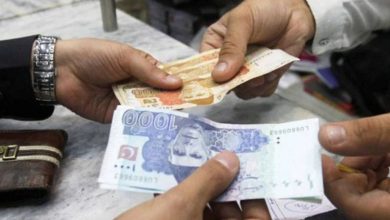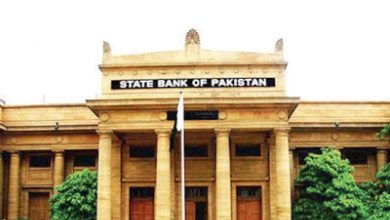Pakistan resolves IMF issues to unlock $7 billion loan

Pakistan on Thursday announced that it had amicably resolved all outstanding issues with the International Monetary Fund paving the way for the approval of the $7 billion loan this month, as it is also set to further tighten the noose around the necks of existing taxpayers after retreating against the traders.
The government has prepared amendments to deny the existing filers of the income tax returns the right to purchase assets if the value of their declared cash balances and income is less than the cost of the new assets.
The step is being taken after the new Federal Board of Revenue chairman analysed the data of the existing less than six million filers of the income tax returns for the tax year 2024. It turned out that hardly 45,000 Pakistanis out of the six million income tax returns filers were showing annual income of more than Rs10 million.
“Thank God, all issues have amicably been resolved with the IMF and this month the IMF board will give final shape to these issues”, said Finance Minister Muhammad Aurangzeb on Thursday.
His statement brings to an end the uncertainty around the approval of the $7 billion Extended Fund Facility that is pending for the final board nod for the past two months.
IMF spokesperson Julie Kozack said in Washington on Thursday that the board is scheduled to meet on September 25 to consider the approval of the $7 billion loan package for three years’ term.
Pakistan took longer than the anticipated time in securing rollover of the $16 billion cash deposits and commercial loans and arranging another $2 billion in commercial financing.
The new 37-month IMF deal approval will mark the beginning of a new journey, which will bring more economic difficulties but its implementation can provide stability.
Compliant taxpayers to pay more
The sources said that the government was working on a new piece of legislation to take measures for enhancing the tax collection, which is facing huge shortfalls against the agreed targets with the IMF.
The government believes that the majority of the existing nearly six million filers, mainly business individuals, associations of persons and companies, have under-declared their assets and incomes in the annual statements filed with the FBR, said the tax authorities. It has been decided that the people and the firms, already in the tax net, would be targeted to cough more revenues.
The government’s decision to charge higher tax rates on the purchase of assets by non-filers is the core reason for a narrow tax base and low taxpayers by the filers. However, the government is still not willing to abolish this uncalled for category of the non-filers, which encourages people to stay away from the tax net.
The government is considering to amend the Income Tax Ordinance to target the majority of the existing nearly six million income tax return filers by either promulgating an ordinance or introducing a bill in the National Assembly, said the sources.
As per the proposal, despite being filers and taxpayers, individuals and firms having assets not worth buying homes, plots and cars would be denied to purchase these assets, said the sources. They would also be denied the right to withdraw their cash balances from the banks, if their aggregate cash withdrawals are less than the amounts shown in their tax returns.
The FBR has proposed to implement these new stringent legal measures with effect from October 1, according to the government sources.
The government officials said that the FBR would give access to the information of the existing taxpayers to the government departments and the commercial banks to deny them the right to purchase the assets.
The proposals are being framed days after the government conceded to the retailers and exempted them from the legal requirement of disclosing their bank accounts and the details of the assets.
Pakistan’s industrialists have already started establishing their businesses overseas and people are finding avenues to stay away from the heavy taxation that has broken the back of the salaried and business individuals. The salaried persons pay up to 39% of their gross salary in taxes while this ratio for business individuals is around 50% of their net income.
Despite the limited tax base and the burden being borne by these people, the government has the audacity to prepare and consider proposals to further tighten the noose around the existing taxpayers.
The FBR sources said that the government was also proposing to deny the right of investing in mutual funds and stock market to non-filers. According to another proposal, the non-filers may also be denied the right to purchase properties. But it is not clear whether the government can afford to implement this recommendation given the pressure by the strong lobbies.
The FBR believes that the existing taxpayers were not coughing up enough revenues. It is going to send them nudging notices, detailing their incomes, assets and the tax liabilities. The notices will go to the existing tax filers.
Civil servants first target
The sources said that in the first step, the income tax returns of the nearly two million federal, provincial and the state-owned enterprises employees would be pre-populated aimed at encouraging them to pay their due taxes.
The FBR plans to go after the business individuals who are already filers but according to its assumption they are not paying due taxes. There are 3.7 million filer business individuals, and 2.4 million of them did not pay income tax last year. Only 20,000 showed more than Rs10 million in annual income while another 921,000 showed less than Rs10 million in annual income.
Out of two million salaried class filers, about 630,000 were below the Rs600,000 annual income tax threshold, according to the FBR officials. There were about 15,000 salaried persons having annual income of Rs10 million or more and paid Rs93 billion in income tax, according to the FBR officials.
However, less than 1.3 million salaried individuals also declared less than Rs10 million annual incomes and paid Rs157 billion income taxes. These people are mostly middle to upper-middle income earners and are bearing the burden of the nation.
According to the tax authorities, there are 80,000 registered companies but less than 6,000 showed more than Rs10 million in annual income. These below 6,000 firms paid the 940 billion income tax, which is 99% of the total income tax paid by all the companies.
There were 47,000 companies that filed nil returns and another 26,000 that declared less than Rs10 million in annual income. The FBR is going to target these existing registered companies.
Likewise, out of nearly 100,000 associations of persons, less than 5,000 showed Rs10 million annual incomes. There were 60,000 such associations, which showed nil income. Less than 5,000 associations declared Rs10 million worth income people and paid Rs150 billion in income tax.




